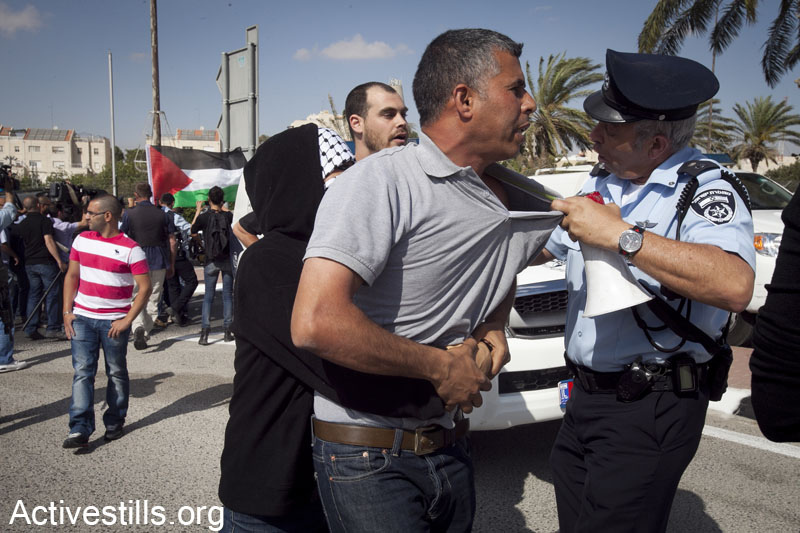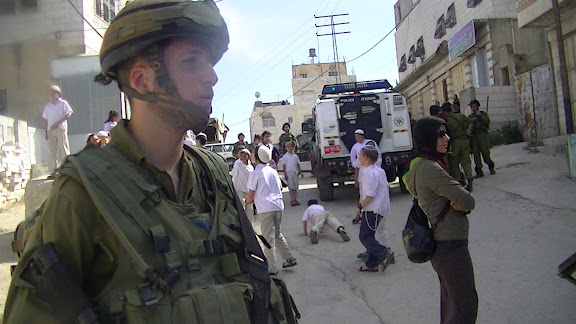Tag: Settlement
-
Two Palestinians arrested as Israeli settlers forcefully enter their property
By Alex Sweden 28 May 2012 | International Solidarity Movement, West Bank On Friday, May 25, illegal Israeli settlers drove into the village Lubban ash-Sharqiya where they attempted to forcefully enter a family’s home. When Israeli soldiers and policemen arrived at the scene they joined the settlers, supporting’ them whilst they tried to enter the…
-
Activists seal off settlement in solidarity with hunger strikers
13 May 2012 | Popular Struggle Coordination Committee Protesters blocked the entrance to the Ma’ale Adumim settlement, meters away from one of Israel’s main interrogation centers in the West Bank. Two protesters were arrested. 50 Palestinian, Israeli and international activists blocked the entrance of the Ma’ale Adumim settlement today, in support of the Palestinian prisoners’…
-
Tel Rumeida: Child settler violence through the lenses of an international activist
by Sunny 5 May 2012 | International Solidarity Movement, West Bank A group of approximately 10 to 15 soldiers displayed their ineptitude in dealing with a group of rowdy settler children, roughly between the ages of 8 to 14, who were attemptng to enter Tel Rumeida. It was an embarrassing episode for the Israeli occupation…


